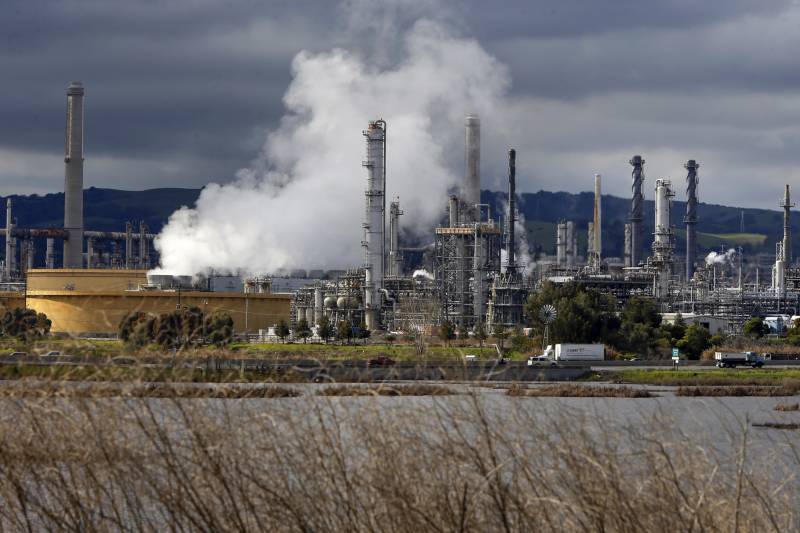California’s oil industry has once again quashed an attempt in the state Capitol to increase penalties on refineries that violate air quality laws.
It’s the fourth time in a decade that the industry has successfully killed or delayed such an endeavor.
The latest proposal was put on hold last week, just days before the Legislature finishes its work for the year on Sept. 14. Assemblymember Buffy Wicks (D-Oakland), who authored the bill, said the move was prompted by concerns some lawmakers would vote against it because it wasn’t weakened enough to satisfy California’s main oil industry group, the Western States Petroleum Association (WSPA).
“It became apparent that we were going to need more time to work on AB 1465 with our sponsor, the Bay Area Air Quality Management District, and with opposition groups who engaged us on the possibility of additional amendments,” Wicks said in an email on Friday.
WSPA represents the oil companies that own all of the Bay Area’s petroleum refineries. The region’s Chevron, Valero, PBF, Marathon and Phillips 66 plants have for decades produced gasoline and jet fuels that have powered major components of the region’s transportation sector. But they have also received hundreds of notices of violations from local air regulators in recent years, stemming from minor flaring incidents to severe accidents that forced nearby residents to stay indoors.
Those incidents prompted Wicks to propose tripling the maximum penalty amounts oil companies would pay when their refineries violate air quality regulations.
